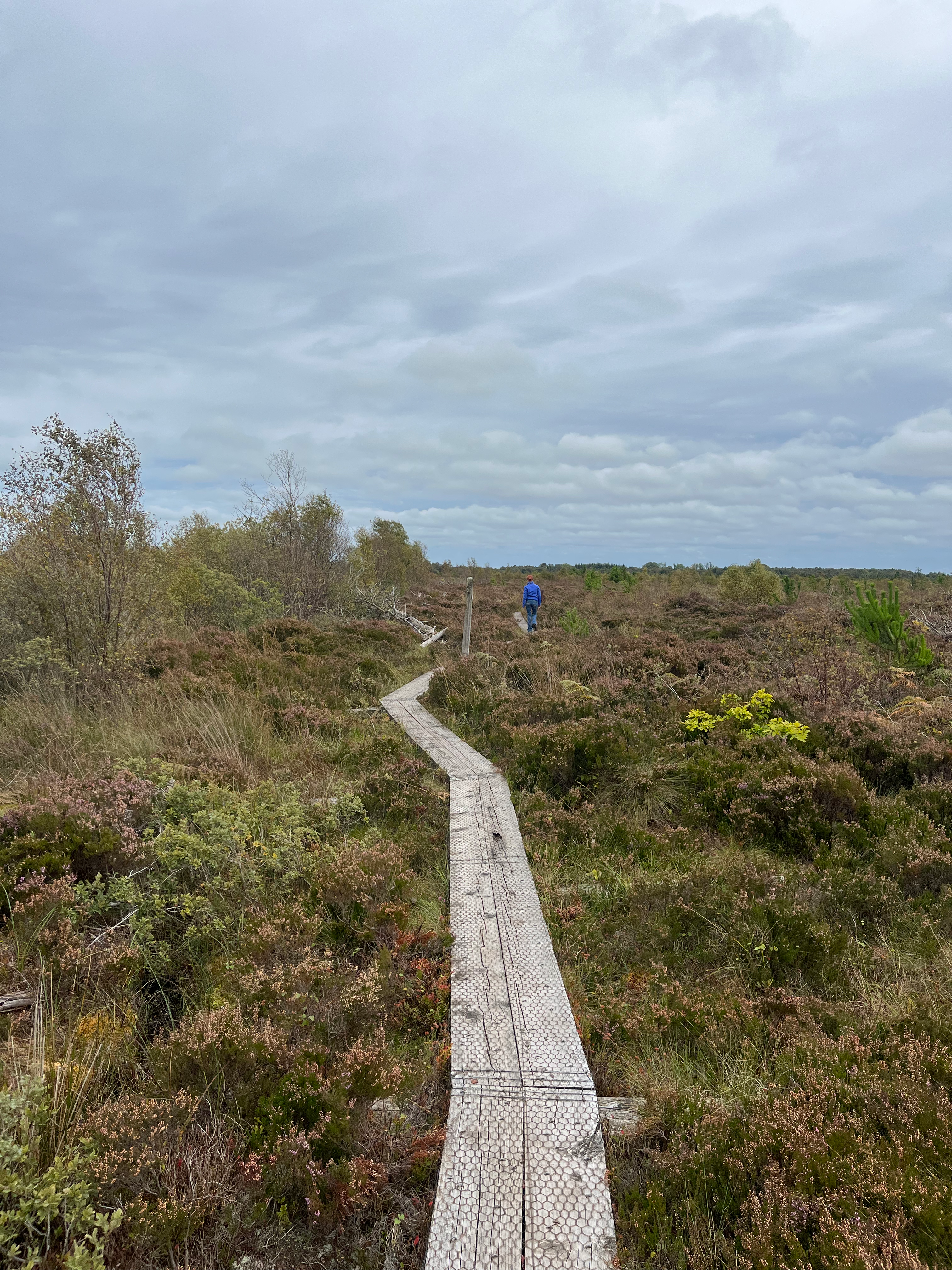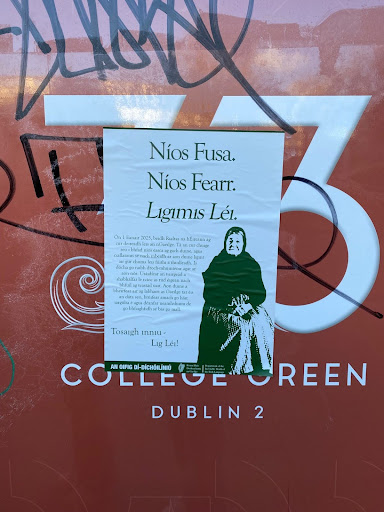
It’s a Tuesday evening in the Irish Writers Centre on Parnell Square, and a lively group of aspiring writers, publishers and anyone in between have gathered for the first of four discussions in Publishing Ireland’s “Life Cycle of a Book” series. The talks aim to expose the inner workings of the publishing process, from the author’s pen to the bookshelves. This first session, entitled “The Writing Process” featured talks from successful authors Ronan McGreevy, Vanessa Fox O’Loughlin, who writes under the pseudonym Sam Blake, and Anna Carey. Each author had fifteen minutes to reveal and reflect upon the writing processes behind their books. The three writers represented different genres of writing, as well as different methods, which sought to provide an array of varied insights into the writing world. With a brief introduction from Ivan O’Brien, managing director of O’Brien Press, who informed us of the many fire exits – should the inspirational words uttered in the room ignite a blaze – the event was off to a thrilling start.
Ronan McGreevy, a senior journalist with The Irish Times, took us through a presentation that revealed the inspiration for his first work of historic non-fiction, Wherever the Firing Line Extends: The Irish on the Western Front. McGreevy spoke of his becoming an “accidental historic writer”, having hoped to be a screenwriter for the majority of his life. On a trip to the Belgian city of Mons, McGreevy stumbled upon a Celtic Cross at La Bascule, dedicated to the Irish soldiers who fought in World War I. His shock at finding such a monument in a small, foreign city revealed the “power of suggestiveness” as he put it, that something so Irish could be found so far away. The idea took root in his mind, and thus his desire to uncover the multitude of Irish monuments across the Western Front was born. Finding a gap in the market for this, his passion to write and publish something that “had never seen the light of day” prompted him to spend countless hours tirelessly researching and fact checking in preparation for his first book.
Having sent it to almost a dozen publishers, each graciously responded to him with a mixture of interest and encouraging declines, yet his motivation for choosing to publish with The History Press Ireland may have been down to a psychological ploy by the company, he joked. They sent him a mock-up of what the cover of his proposed book may look like, and thus spurned the long relationship he has had with them. McGreevy went on to stress the importance of photographs and layout for a work of non-fiction, describing it as one of the great difficulties he faced. Laughing, McGreevy stated how lucky he felt to have a close friend edit his book, noting that it often came back “plastered with red ink.” He joked about the laborious task of footnotes, adamantly advising fellow writers not to leave it all until the end as he did, with a whopping 732 footnotes to be done. McGreevy finished with a stellar piece of advice for anyone attempting to write non-fiction: “Don’t let the research overwhelm the writing.”
Founder of The Inkwell Group, a publishing consultancy, and resource website writing.ie O’Loughlin, aka Sam Blake, took the mic next. She began by revealing that her pseudonym was a response to her name being far too long and somewhat difficult for people outside of Ireland to pronounce. Her debut crime novel, Little Bones came to her in one of the most unique and “lightbulb” type moments imaginable. Two completely unrelated news stories, one of a young woman who left her deceased newborn in a suitcase under a bed, and a playwright who kept all of his plays in a suitcase under a bed before he died, culminated in the idea for Little Bones. O’Loughlin described her writing process as “a bit suck it and see.” She divulged that a major plot point in her narrative did not come to her until she was writing a character’s confessions in the book. Sending out a draft of the novel to readers for feedback, she stated that these reader reports made her realise she had so much to learn. Her main instruction was that it’s “all about the rewriting.” Discussing the desperation that all first time authors have to be published, O’Loughlin firmly believes that the real work begins when the final full stop of the novel is put on the page.
She detailed how, with her first novel, she had the luxury of time which shortly disappeared following a three book deal. Suddenly she had deadlines and publishers counting on her to have it done, whilst also still involved in the marketing process for the first book, and trying to keep up with the third book. Giving further insight into the publishing process, O’Loughlin discussed how her publishers and editors helped to shape her book, resulting in a rewrite of almost half of her second novel in the series In Deep Water . She facetiously forbid us from disclosing to the public the current word count of her third novel in the series, telling us to “keep it off Twitter!” for fear of wrath of her publishers. This revelation, as little as I am disclosed to say, gave further understanding of the writing process, and the hectic lifestyle that it can sometimes induce. O’Loughlin implored the need for an editor who will not only tell you the book is good, but will more importantly tell you what is wrong with it.
Winner of the Irish Book Awards Children’s Book of the Year for her first novel, The Real Rebecca, Anna Carey was next in line to impart her wisdom upon us. Citing her start in the writing world as a small child who “wrote a lot but never finished anything”, she began her writing journey by stealing ideas from authors she greatly admired as a child and regurgitating them for her own amusement. Her love for writing was flourished as a journalist for Trinity News during her time as a student in Trinity, and bloomed in adulthood when O’Brien Books sent out a request for diary style books for teens. Discussing her struggles to meet deadlines owing to her hectic life of balancing a day job with writing, Carey suggested that “comic fiction is all about the voice”. She details how each story has beats within it that have to be hit in order to create a worthwhile narrative. She says “you have to have some idea of where [the narrative] is going, but you can’t be too rigid”. She spoke of the difficulty of writing from the perspective of a teen, stating that one just has to assume young people feel more or less the same now as they did 20 years ago. Most importantly, she noted, “you have to have your heart in your writing.”
Carey’s latest novel The Making of Molly is a work of historical fiction, born out of research of the Irish Suffragette movement. She believes it is vital, when writing for teens, not to underestimate their intelligence. That the subject may be vaguely unfamiliar to the youth of today should not be an obstacle, she said.
The floor was then opened up to guests, who had the opportunity to ask questions of the three authors. Carey discussed her belief that comic narrators have to be somewhat unreliable, and that humour is often not in the gags but sometimes simply in the rhythm of a sentence. O’Loughlin informed us that often, a good publisher will do a solid edit on your work, and professional editors are sometimes not necessary. All three agreed that multiple editors provide lots of different eyes for your work, and that it is impossible to edit yourself. The event ended on the importance of maintaining a good relationship with your editor or publisher in order for your book to reach its full potential.
The next three in the sessions, entitled “Getting Published”, “What Publishers Do” and “Reaching the Reader” respectively, promise to be just as exciting and informative as this premier one, and will be from 6:30 pm for the next three Tuesday’s in The Irish Writers Centre. Tickets can be purchased from eventbrite.com at €15 a session.






